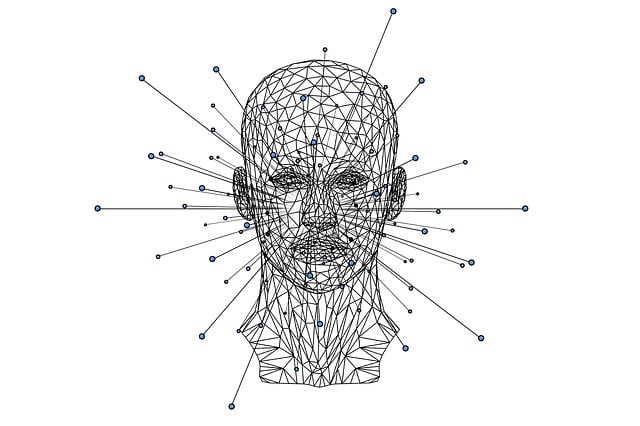Virtual therapy sessions provide accessible and flexible mental health support through video conferencing, offering privacy, convenience, and enhanced availability. Adapted therapeutic techniques focus on client comfort and confidentiality, while secure platforms ensure safety. These sessions revolutionize patient engagement, empower self-care, and integrate AI for improved accessibility and care outcomes.
Remote psychological counseling, or virtual therapy sessions, is transforming mental healthcare access. In today’s digital age, understanding how these sessions work and their numerous benefits is crucial. From improved accessibility and flexibility to enhanced patient engagement through technology, remote counseling offers a viable alternative to traditional practices. This article explores various facets of virtual therapy, including setting up effective online spaces, therapeutic techniques, privacy considerations, and future trends shaping remote mental healthcare.
Understanding Virtual Therapy Sessions

Virtual therapy sessions have become an increasingly popular and accessible way for individuals to receive mental health support. Unlike traditional in-person counseling, these sessions take place online through video conferencing platforms, offering flexibility and convenience for clients. During a virtual session, therapists maintain a safe and confidential space, utilizing various digital tools to facilitate effective therapy. They may employ video and audio functions, share documents, or even use interactive features to create an engaging environment conducive to healing.
This modern approach allows for real-time interaction, enabling therapists to provide personalized care while adapting to each client’s unique needs. The use of technology ensures that individuals who might face barriers such as physical limitations, long travel distances, or time constraints can still access professional counseling. With proper privacy measures in place, virtual therapy sessions bridge the gap between traditional face-to-face interactions and remote support, making mental health services more inclusive and readily available.
Benefits of Remote Psychological Counseling

Remote psychological counseling, facilitated through virtual therapy sessions, offers a range of benefits that make it an attractive and increasingly popular option for many. One of the key advantages is accessibility; individuals from diverse geographic locations can now access professional mental health support without facing physical barriers. This is particularly beneficial for those in rural areas or with limited mobility, ensuring they receive the care they need regardless of their location.
Additionally, virtual therapy sessions promote convenience and flexibility. Clients can participate in these sessions from the comfort of their homes, saving time and effort on travel. This format also accommodates busy schedules as individuals can access counseling at times that align best with their personal routines. Moreover, remote counseling often includes enhanced privacy, as clients interact from private spaces, fostering a sense of security during discussions.
Setting Up Effective Online Therapy Spaces

Creating a conducive environment for online psychological counseling is essential for successful virtual therapy sessions. It involves more than just having the right technology; it’s about fostering a safe, comfortable, and supportive space that mimics the intimacy of in-person therapy while leveraging digital tools. Therapists should choose a quiet, private setting with minimal distractions to ensure client confidentiality and focus. Customizing a dedicated online counseling room, free from interruptions, allows for a more personalized experience.
The virtual therapy space should be designed with accessibility in mind. This includes using user-friendly video conferencing software that facilitates clear audio and visual communication. Therapists may also consider incorporating elements like soothing backgrounds, calming music, or even virtual reality tools to create a sense of presence and engagement. Ultimately, the goal is to make clients feel at ease, ensuring they can openly discuss their concerns and actively participate in their therapy journey within this digital setting.
Therapeutic Techniques for Virtual Interactions

In the realm of remote psychological counseling, or virtual therapy sessions, a range of therapeutic techniques have emerged as effective tools for fostering meaningful connections and delivering quality care. These sessions often involve adapting traditional methods to suit the digital landscape, ensuring client comfort and confidentiality in a virtual setting. One key technique is integrating video conferencing with interactive elements like shared screens, allowing therapists to collaboratively work on exercises with clients in real-time.
Furthermore, leveraging online resources for therapeutic activities, such as guided meditations or journaling prompts accessible through secure platforms, enables clients to actively engage in their healing process between sessions. Text-based communication and chat features also play a vital role, offering immediate support and facilitating open dialogue. The success of virtual therapy sessions relies on therapists’ adaptability, employing these techniques to create an inclusive, engaging environment conducive to psychological growth and recovery.
Addressing Privacy and Security Concerns

Privacy and security are paramount concerns in remote psychological counseling, especially with the rise of virtual therapy sessions. As more individuals opt for online mental health services, safeguarding sensitive personal information becomes crucial. Reputable online counseling platforms employ advanced encryption technologies to protect data during transmission and storage, ensuring client confidentiality.
These measures include secure video conferencing tools, encrypted messaging systems, and robust cloud storage solutions. Therapists undergo rigorous training on data protection protocols, adhering to strict ethical guidelines. Additionally, informed consent forms clearly outline the use of digital platforms, empowering clients to understand their rights and privacy protections during virtual therapy sessions.
The Role of Technology in Patient Engagement

The role of technology in remote psychological counseling, particularly through virtual therapy sessions, has transformed patient engagement dramatically. Digital platforms and secure video conferencing tools enable therapists to connect with clients from the comfort of their homes, breaking down geographical barriers. This accessibility paves the way for more people to access mental health services, overcoming challenges related to time zones, transportation, and physical limitations.
Moreover, technology offers interactive features that enhance therapeutic experiences. For instance, chat functions allow for quick communication between sessions, while online resources like mood trackers and guided meditation apps empower patients to actively participate in their treatment plans. These tools not only facilitate patient-therapist interactions but also encourage self-reflection and self-management, fostering a sense of ownership over one’s mental health journey.
Future Trends in Remote Mental Healthcare

The future of remote psychological counseling is promising, with virtual therapy sessions poised to become a prominent and accessible part of mental healthcare. As technology continues to advance, we can expect improvements in video conferencing platforms designed specifically for therapeutic settings, enhancing privacy and security measures. This shift will make quality mental health services more available, especially in underserved areas.
Artificial intelligence (AI) is another game-changer on the horizon. AI chatbots could provide initial assessments and support, offering a 24/7 resource for basic counseling needs. Additionally, AI algorithms can analyze vast amounts of data to predict and prevent potential mental health crises, enabling more proactive interventions. These innovations aim to improve patient outcomes and reduce the burden on traditional counseling services.
